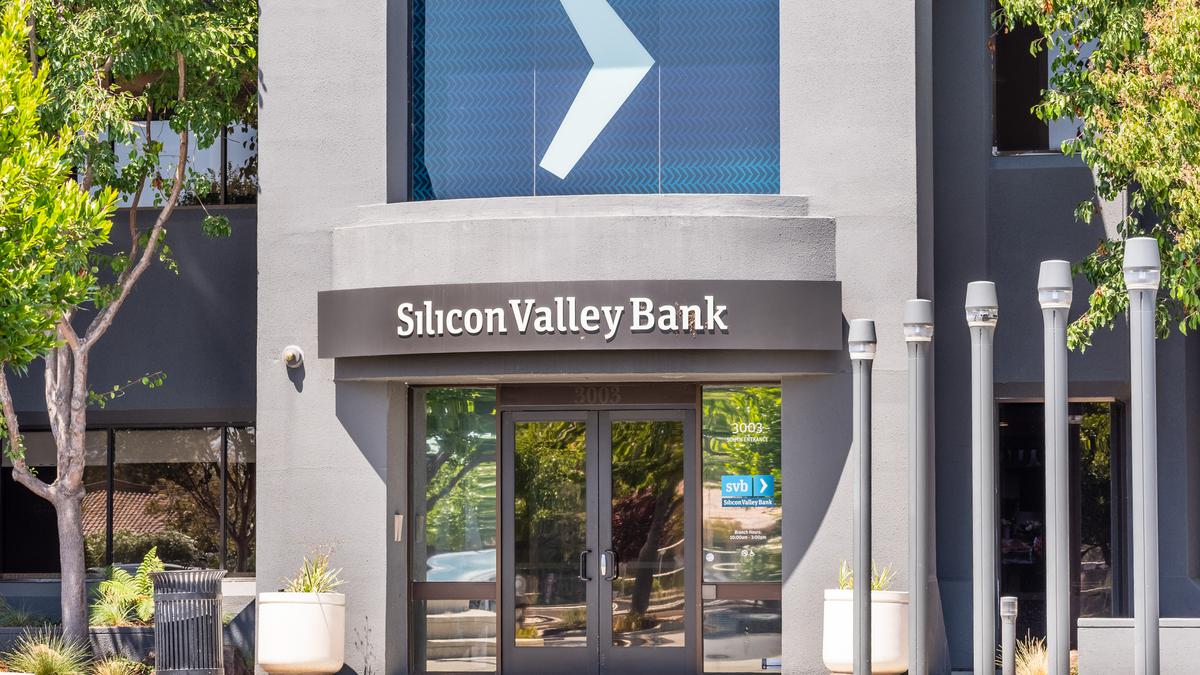
Explained | Will the SVB collapse impact Indian start-ups? Premium
The Hindu
Will the U.S. administration’s move to guarantee deposits calm nerves and ensure funding is not disrupted in the sector? What are the lessons to be learnt from the Silicon Valley Bank crisis? Will investors look at the Indian start-up ecosystem as more favourable?
The story so far: On March 10, banking regulators in the U.S. took control of the Silicon Valley Bank (SVB), which typically catered to start-ups, venture capitalists and tech firms, after it suffered a sudden collapse. Days earlier, the bank, headquartered in Santa Clara, California, had announced that it was facing a cash crunch, and failed to raise money by either selling shares — or itself — spooking investors and leading to a run on the bank. On Sunday, the U.S. administration and regulatory authorities acted in concert to guarantee that depositors’ money would be repaid in full. And in India, Union Minister of State for Information and Technology Rajeev Chandrasekhar met Indian start-ups to assess the impact on them and to try and help them tide over the situation.
The Joe Biden administration moved in quickly with the Federal Reserve, the U.S. Treasury Department, and the Federal Deposit Insurance Corporation (FDIC) deciding to guarantee all deposits at SVB. It also seized another bank on Sunday, New York’s Signature Bank, which had a large exposure to investors in cryptocurrencies and the digital assets sector. “Your deposits will be there when you need them,” President Biden said at the White House, an announcement aimed at reassuring the American public that the country’s banking system was sound and had the backing of the administration.
He also made clear that taxpayers would not have to foot the bill for the government’s actions, and that the money would come from the fees that banks pay into the FDIC.
According to media reports, at least 21 start-ups in India had exposure to SVB, which had approximately $209 billion in assets and about $175.4 billion in total deposits as of December 31, 2022. In a Twitter Spaces interaction on Thursday night, Mr. Chandrasekhar said India’s start-ups collectively had about $1 billion of their funds deposited in SVB. Earlier in the week, the start-ups had apprised the minister about the fallout including specifically about difficulties in carrying on their business due to blockages in international wire transfers, lack of communication from U.S. agencies, limits on withdrawals and so forth. Finance Ministry officials said the failure of SVB was likely to impact some Indian tech start-ups and IT firms, but that any broader “contagion” that might arise would neither reach Indian shores in a hurry nor were they likely to trigger “systemic risks”.
A number of industry stakeholders said while the immediate impact would be minimal because of the bailout, the change in sentiment may have some dampening effect on the entire tech industry for a while. Peter Bendor-Samuel, CEO, Dallas-based Everest Group, told The Hindu that given that the U.S. was guaranteeing all deposits, the direct impact on the industry and Indian firms, “is likely to be modest.” Avinash Vashistha, Chairman Emeritus, Tholons, a New York-based global innovation advisory and investment firm that had a banking relationship with SVB, told this newspaper: “Many start-ups will be impacted and may have challenges in making U.S. payroll and investments for a week or so. For start-ups and venture funds that have less than $2,50,000 per account at SVB, they should have a minor hitch.”
According to Mr. Bendor-Samuel, and many in the tech sector agree, the change in sentiment after the collapse of SVB, will lead to more caution. Perhaps, a further pull-back from the tech industry may have some dampening effect on all start-ups’ ability to raise money and create some headwinds in their client base. “This will not kill the space but slow it down,” he said.
Editorial | Lessons learnt: On the Silicon Valley Bank episode

Domestic household savings replace foreign institutional money, giving Indian markets stability but raising concerns about unequal participation and limited returns for new retail investors. Access asymmetry and unequal outcomes emerge as key challenges, making investor protection, lower fees, passive investing, and stronger governance crucial.

The Ministry of Petroleum and Natural Gas (MoPNG) should work closely with the Ministry of External Affairs (MEA), and other concerned government agencies, to strengthen diplomatic engagement with oil-producing countries, secure favourable investment terms and address tax and regulatory hurdles faced by public-sector enterprises (PSEs) abroad, the parliamentary committee on public undertakings (2025-26) stated in their latest report tabled Wednesday.











